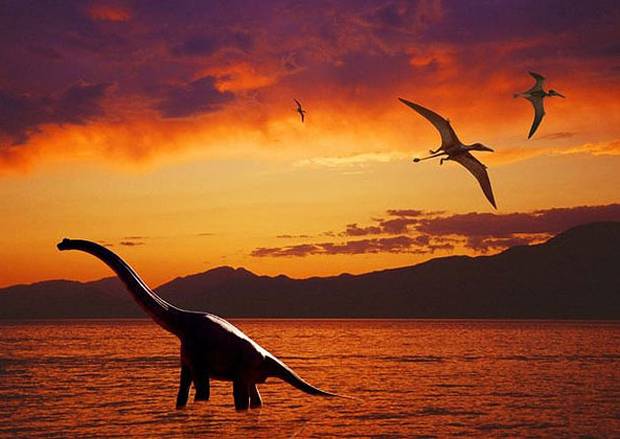Giant asteroid unlikely to have created firestorms big enough to kill off dinosaurs, scientists say
Scientists believe that a giant asteroid hitting Earth would not be able to ignite a firestorm on a global scale

Your support helps us to tell the story
From reproductive rights to climate change to Big Tech, The Independent is on the ground when the story is developing. Whether it's investigating the financials of Elon Musk's pro-Trump PAC or producing our latest documentary, 'The A Word', which shines a light on the American women fighting for reproductive rights, we know how important it is to parse out the facts from the messaging.
At such a critical moment in US history, we need reporters on the ground. Your donation allows us to keep sending journalists to speak to both sides of the story.
The Independent is trusted by Americans across the entire political spectrum. And unlike many other quality news outlets, we choose not to lock Americans out of our reporting and analysis with paywalls. We believe quality journalism should be available to everyone, paid for by those who can afford it.
Your support makes all the difference.A favourite theory to explain the sudden demise of the dinosaurs 65 million years ago has been debunked by an experiment suggesting that it would have been unlikely for a giant asteroid impact to cause a global firestorm.
It is known that a massive asteroid collided with the Earth at around the same time that the dinosaurs went extinct and it was thought that the impact generated high enough temperatures to ignite vegetation around the world in a global conflagration.
However, an experiment involving a heat furnace and various items of living and non-living plant material has shown that the temperatures created by such an impact, and crucially for how long they occurred, would probably not have been great enough to ignite living vegetation on a global scale, scientists said.
“Previously, people would only have been able to speculate on whether the heat from an asteroid would have caused firestorms. We actually recreated the heat predicted from computer models of such an impact,” said Claire Belcher of Exeter University.
“We found that the living plant material that would have been close to the impact site did not ignite. If there were any firestorms, they were likely to have been localised rather than global,” Dr Belcher said.
However, a collision with an asteroid large enough to leave behind an impact crater 200km (124 miles) wide would still have caused cataclysmic damage to the global environment, throwing up enough ash, dust and debris into the atmosphere to block sunlight for many months to create a “nuclear” winter, she said.
“We’re not saying that an asteroid didn’t wipe out the dinosaurs, only that it probably didn’t cause the global firestorms that many people assumed had happened as a result of the impact,” she added.
The idea that an asteroid was responsible for wiping out the dinosaurs goes back 35 years when Luis and Walter Alvarez of the University of California, Berkeley, discovered worldwide deposits of iridium, a mineral found in meteorites, within a layer of rock formed about 65 million years ago.
About a decade later, scientists discovered a huge underground impact crater straddling the coastline at Chicxulub on the Yucatan peninsula of Mexico. The date and size of this impact crater matched the timing of an asteroid collision large enough to cause global devastation 65 million years ago, possibly resulting in a global firestorm.
However, a study published in the Journal of Geological Science found that although the temperatures nearby the impact site probably reached in the region of 500C, they lasted for only a minute, which was not enough to ignite most forms of living plant material.
In addition, the researchers found that the heat generated at greater distances, equivalent to a site as far away from Mexico as New Zealand, would have reached about 200C, but this time would have lasted for about seven minutes – long enough to ignite living trees and plants.
“This has shown that the heat was more likely to severely affect ecosystems as long distance away, such that forests in New Zealand would have had more chance of suffering major wildfires than forests in North America close to the impact,” Dr Belcher said.
“This flips our understanding of the effects of the impact on its head and means that palaeontologists may need to look for new clues from fossils found a long way from the impact to better understand the mass extinction,” she said.
Even if global firestorms did not occur, the environmental changes brought about by the asteroid impact would not have hindered the dinosaurs’ survival given that they were too large to hide away or hibernate underground, she added.
Join our commenting forum
Join thought-provoking conversations, follow other Independent readers and see their replies
Comments